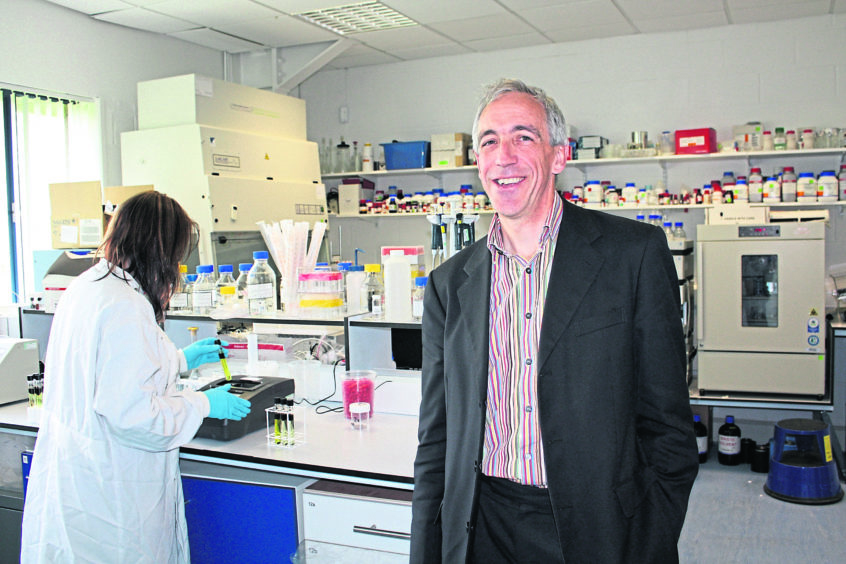
Procurement policy “barriers” put up by operators are stifling technology development among SMEs, an oil and gas industry entrepreneur said.
Laurence Ormerod – chairman of four oilfield tech companies whose investors include angel syndicates, venture capitalists and private equity – said the “race to finish second” mentality is still a big problem among risk-averse operators.
Mr Ormerod also feels oilfield technology companies need to “push commercialisation” and get to market as early as possible to avoid failure.
He said: “Getting a prototype is one thing, and people tend to set up milestones and funding, but because of how long it takes to get to commercialisation, we need a lot
of investment funding just to stay still.
“You need to be pushing commercialisation early on, but people tend to think they need to keep their product or invention sacred, particularly if it is not fully patented yet.
“They might spend a lot of capital inventing the product, then find it takes two or three years to get anyone to pay up to use it.
“You have to manage carefully how much you’re going to need.”
Mr Ormerod, who helped grow Edinburgh Petroleum Services from a £1 million revenue company to one with sales of £6m by the time of its acquisition by Weatherford in 2004, believes launching new technology became even more difficult after the downturn struck, as companies panicked and money dried up.
He said that approaches to procurement among operators and bigger suppliers could also act as a “barrier” in an industry that “prides itself” on innovation.
“When you have a policy-driven approach on procurement which says you’re not going to add new suppliers, or that you’re going to do everything through big service companies, it’s not helpful for small innovative companies, though it might be good for the operator,” he said.
“Investment is still available, but procurement approaches in some companies make life difficult. Operators can say ‘XYZ handles this area for us so go and talk to them’, so you’re not always pitching benefits to the end user.
“You get someone in the middle who doesn’t have the same interests as the oil company.
“And your product could disrupt the supply of the service company to the end customer.
“So forcing smaller companies to go through large service companies is usually a negative, unless the technology is something properly complementary and the tier one company can see that.”
Mr Ormerod identified a number of examples of worthwhile products being developed by supply chain.
He said the likes of Optasense, Silixa and Fotech were all doing good work in the field of distributed sensing.
Meanwhile, he is impressed by Aberdeen firm Sensalytx, a start-up in software aimed at getting valuable information out of distributed measurements, and Well-Sense Technology, with its disposable FiberLine Intervention tool.
One of the firms Mr Ormerod chairs is Edinburgh-based oilfield chemical measurement business Lux Assure, which already has products generating revenues on the market.
This year Lux and Strathclyde University secured a grant from the Oil and Gas Innovation Centre to further develop technology to provide the industry’s first corrosion inhibitor micelle detection tool with automated data analysis capability.
Mr Ormerod said the new offering would automatically inform clients of optimal corrosion inhibitor dosage, leading to quicker decisions on chemical injection at the work site.